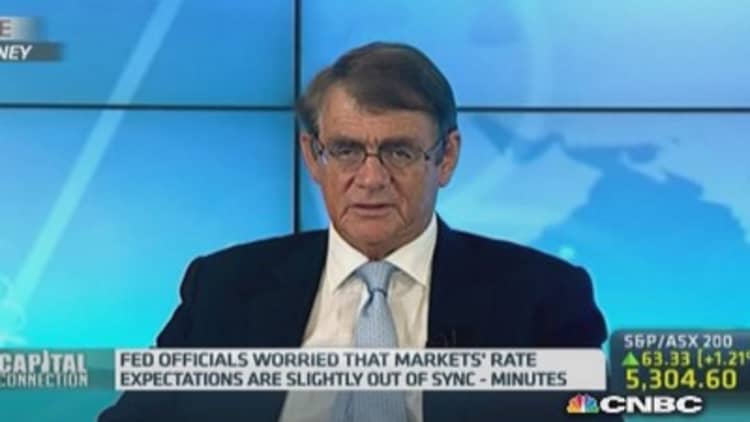Australia's once-booming resources sector is fizzling, but HSBC says a new engine may propel the economy: housing and infrastructure.
"The time now appears right for a renewed focus on urban infrastructure," HSBC said in a report this week. "Such activity should help to support Australia's great re-balancing act and employment growth at a time when labor and construction costs are easing as the mining boom ends."
Sales and service income in Australia's mining industry, a key growth driver in recent years, decreased 7.5 percent between 2012/13 and 2011/12, government data show, dragged by cooling demand from China, falling metals prices and sector-wide cost-cutting measures.
Read MoreWhy the tide is against the iron ore giants
Investment
In its 2014 budget, the Australian government pledged to spend A$50 billion over seven years to "deliver vital transport infrastructure".
An incentive program was also included to motivate state governments to privatize mature assets in order to raise sufficient funds for new infrastructure.
So far, a handful of privatization/recycling plans have been formally put in train under the scheme, the most prominent being the proposed lease for the Port of Melbourne.
If states fully utilize the Federal government's recycling program and the remaining funds are appropriately sourced by leveraging on private sector expertise, these measures could potentially boost Australia's gross domestic product by as much as 2 percent over the next two to three years, according to Paul Bloxham, chief economist for Australia and New Zealand at HSBC.
Challenges
The government's plans face challenges including timing and land supply, according to Ric Spooner, chief market analyst for CMC Markets.
"Large public infrastructure projects, like mining projects, have long planning and approval processes," he said. "It may be difficult to get some of these projects up and running until well after the big mining projects have come to an end."
Read MoreIs Australian housing facing a repeat of 2003?
For housing, the supply of land and expensive approval processes have been an impediment to building the new dwellings Australians need, he said, noting some of this can be attributed to political pressure.
Electorates like the idea of more affordable housing, but not the higher population density or urban sprawl that comes with it. This puts politicians in a vice between first home buyers that find it difficult to enter the market and communities seeking to maintain the character of their neighborhoods.

Employment
A decline in mining investment will likely see Australia lose 50,000 to 75,000 jobs over the next few years, Australia New Zealand Banking warned in July, but infrastructure investment could make up for job losses.
"We see a pickup in infrastructure building as a new key way to absorb many of the jobs that are likely to be lost as mining investment falls in coming years," said Paul Bloxham, chief economist for Australia and New Zealand at HSBC.

